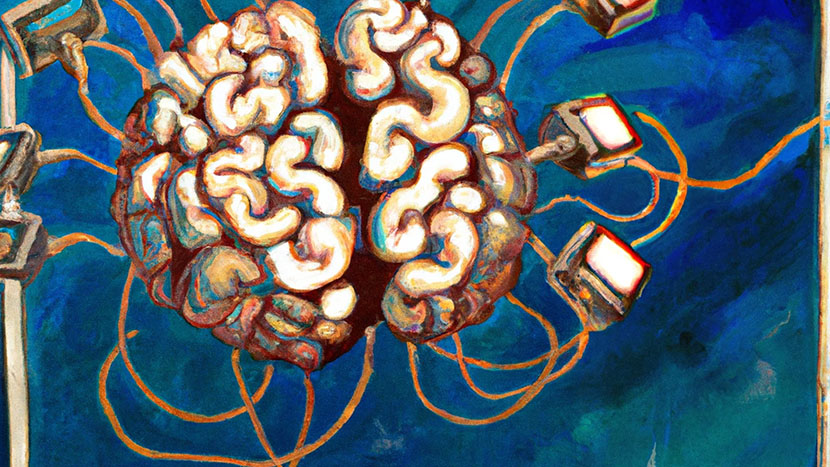Neurological Responses to Risk and Reward
Although wagering can be a fun pastime with an impressive thrill, it can result in profound changes in the brain’s response to risk and reward. The act of gambling serves as a catalyst for discovering untapped potential within ourselves. It also provides an opportunity for players to put their minds to work in a bid to get the much-needed rewards we seek biologically. This process reshapes and alters the brain’s reward system. In this article, we explore the neuroscience that causes adults to wager and how risk and reward in gambling affect the brain to keep bettors hooked to the thrill.
The Effects of Gambling on the Brain
The impact of gambling on the brain is undeniable, as it consistently displays signs of measurable changes in brain chemistry. This behavioral activity closely intertwines with the functioning of the brain’s reward system. Over time, gambling influences dopamine levels, a chemical that is responsible for generating feelings of pleasure and reward.
As individuals engage in gambling, the brain’s dopamine release becomes linked to the anticipation and experience of potential rewards. This connection between gambling and dopamine contributes to the allure and addictive nature of wagering, as the brain seeks to replicate and sustain the pleasurable sensations associated with the pursuit of rewards. For example, hitting the jackpot or having any major success in wagering will stimulate a dopamine rush, which will cause you to experience good feelings. After this experience, you will do anything to have more pleasurable moments, such as wagering over and over again.
Increased Brain Activity
Contrary to popular opinion, gambling does have some beneficial effects on the player’s brain power. After encountering several successes, a gambler’s brain will begin developing a tolerance for dopamine release. This tolerance forces them to explore every facet of wagering while at the same time developing their skills in order to take higher risks.
Fortunately, you can easily find the best resources to improve your wagering skills at Gambling sites. On this site, you will get the complete online casino gambling guide that shows you the best online casinos to start at today. Moreover, you will learn all the expert tips & tricks for gambling games and how to employ them as part of your gameplay strategies. Some of these tips include using casino bonuses and playing game variants with great Return-To-Player (RTP) value.
Inside a Gambler’s Brain
Understanding the brain activity of gamblers requires clarity on how wagering affects specific regions of the brain. Experts have discovered through human-subject studies and animal studies that certain parts of the brain can influence gambling behaviors. The two major parts include:
The prefrontal cortex
It is part of the brain that is responsible for various cognitive functions, including: personality, complex problem-solving, planning, and analyzing potential consequences. It plays a crucial role in decision-making processes and executive functions.
The ventral striatum
It is a brain region associated with processing emotions, particularly those related to pleasure and rewards. It is involved in the brain’s reward system and plays a key role in the experience of motivation, anticipation, and reinforcement.
After intensive research, scientists have made notable discoveries regarding the effects of consistent gambling on the brain’s activity and connectivity. It has been found that prolonged engagement in gambling leads to a decrease in prefrontal cortex activity. On the other hand, the reward system, primarily associated with the ventral striatum, shows increased connectivity in individuals who gamble regularly. The ventral striatum becomes more engaged and connected in response to the stimulation of gambling.
These findings shed light on the neural changes that occur within a gambler’s brain. They also highlight the complex relationship between cognitive processes, emotional responses, and the reinforcement of gambling behavior.
Final Thoughts
Wagering is a fun activity that provides gamblers with a remarkable sense of thrill and excitement. Beyond merely satisfying their craving for excitement, engaging in games like poker can also contribute to the mental growth and cognitive abilities of players. Moreover, the act of gambling has a positive impact on the brain, as it keeps it actively engaged and stimulated.
The changes in brain chemistry that occur during gambling serve as a motivational factor for gamblers to tap into their brain’s reward system, thereby fostering its development and capacity. However, while indulging in wagering, it is essential to maintain awareness of your habits and exercise responsible behavior in order to fully enjoy the benefits that this activity has to offer. Especially since heavy gambling can reduce rationality and increase the need to seek rewards, causing players to become addicted. So have fun, but wager wisely!


































































































